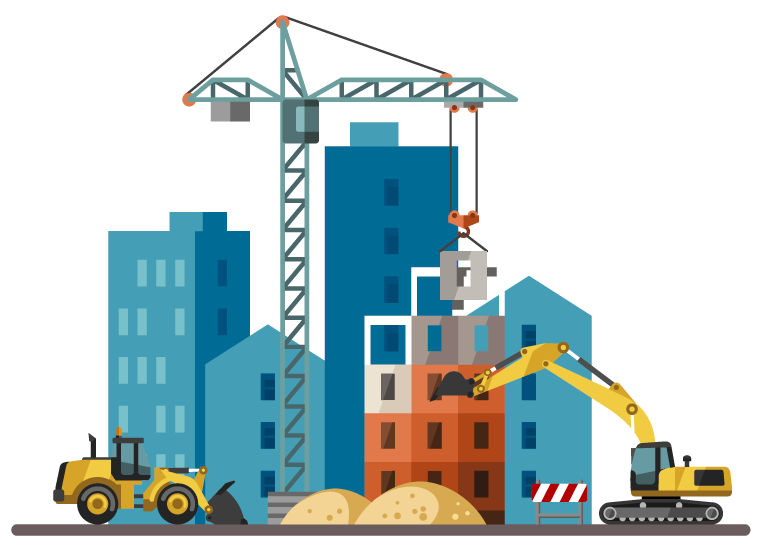When it comes to construction waste management, businesses have a lot of responsibilities to consider. Construction companies, in particular, need to be extra vigilant when it comes to solid waste disposal.
From environmental responsibilities to sorting and storing solid waste safely and securely, construction businesses need a thorough understanding of what action to take when it comes to the disposal of different types of waste materials.
If you’re unsure what to do with leftover commercial materials such as concrete or insulation, or if you have any concerns about construction waste responsibilities, then check out our straightforward guide on solid waste disposal.

What does ‘solid waste’ mean?
Solid waste refers to any non-liquid substances produced from commercial activities (such as demolition, agriculture or industry work) that are no longer needed and have served their intended purpose.
Examples of solid waste
Solid waste materials produced by construction activities may include:
- Insulation
- Concrete
- Bricks
- Tiles
- Cement
Other commercial solid waste can include packaging (including food packaging), documents and other disposables. You will need to identify any hazardous waste materials before proceeding with your solid waste disposal as hazardous items have different requirements.
Related: What is liquid waste and how to dispose of it
What does solid waste disposal mean?
Solid waste disposal is the act of discarding an item that is no longer useful or that has served its purpose. Individuals undertaking solid waste disposal must follow the UK’s government guidelines described below.

What are my responsibilities for disposing of solid waste?
As a business owner, you have several responsibilities when it comes to solid waste disposal, including:
- Minimising refuse by striving to prevent, reuse, recycle or recover waste
- Safely and securely sorting and storing waste
- Completing a waste transfer note for each batch of waste that leaves your commercial premises
- Ensure you use a registered waste carrier to dispose of your solid waste
- Prevent your waste carrier from disposing of your waste illegally
Check out our guide on how to dispose of hazardous waste.
Who can dispose of solid waste?
Because construction solid waste materials (such as bricks, cement or insulation) require responsible, legal and safe disposal, you need to source a credible and licensed waste collection company.
What does a licensed waste collection company do?
A licensed waste collection company (also known as a “waste carrier”) is a registered person or business that buys, transports and sells or disposes of waste following government guidelines.
These licensed companies, such as Clear It Waste, can be identified on the public register of the Department for Environment Food & Rural Affairs.
Why Choose Clear It Waste
Clear It Waste is a reputable, fully licensed and insured waste collection company servicing construction businesses in London.
Providing systematic waste collection with an eco-friendly approach, here are just a few reasons why we are London’s top company for construction waste disposal:
- Offers flexible, same-day waste collection services throughout London
- Holds a full waste carriers license and is listed on the government’s public register
- Is a fully insured company
- Ensures that more than 80% of collected waste is recycled or reused
Remember: it is your responsibility to source a credible and licensed waste carrier to dispose of your solid waste, so don’t hesitate to get in touch with Clear It Waste for our expert advice and services.
Solid waste disposal FAQs
Can I dispose of solid waste myself?
In short: no. According to government guidelines, you should use a reputable waste carrier that is registered to dispose of waste and does so legally and responsibly.
What is a waste transfer note?
A waste transfer note is a document that details the transfer of your waste. As part of your solid waste disposal responsibilities, you need to complete a waste transfer note for each load of non-hazardous waste you remove from your premises.
Check out our waste transfer note guide for more information.
How can I prevent, reuse or recycle rubbish produced by my business?
It’s important to try to prevent, reuse, recycle or recover waste (in that order) wherever possible. You can take steps to prevent your construction waste. Recycling construction waste is possible and some materials are easy to recycle.

1.
Get in touch for your free, no-obligation quote.

2.
Book your collection online or with our friendly team.

3.
We collect your waste and leave your area clean and tidy.

